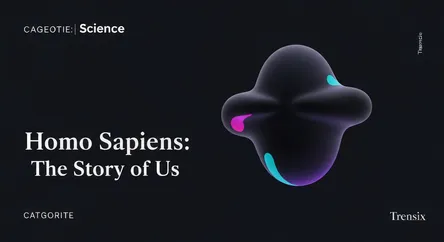Science
Homo Sapiens: The Story of Us

Discover Homo sapiens, the species of modern humans. Explore our evolutionary journey, unique traits, and profound impact on the planet.
What is it?
Homo sapiens, Latin for 'wise man', is the binomial nomenclature for the only extant human species. As the sole surviving member of the genus Homo, we are anatomically modern humans, characterized by our upright posture, bipedal locomotion, and exceptionally large, complex brains. This advanced cognitive ability has enabled the development of complex tools, language, art, and intricate social structures. Originating in Africa approximately 300,000 years ago, our species eventually migrated across the globe, adapting to diverse environments and becoming the most widespread and influential species on Earth.
Why is it trending?
Our own origin story is a topic of perpetual fascination, constantly updated by new scientific discoveries. Recent advances in DNA analysis and paleoanthropology are revealing a much more complex history than previously thought. Findings about interbreeding with other hominins like Neanderthals and Denisovans, the discovery of new human relatives, and shifting timelines for our migration out of Africa consistently make headlines. These revelations challenge old theories and deepen the compelling mystery of what it means to be human.
How does it affect people?
Understanding Homo sapiens' evolutionary history directly impacts our lives. It informs modern medicine by explaining genetic predispositions to certain diseases and provides a foundation for psychology and sociology by offering insights into our innate behaviors and social patterns. On a broader scale, it underscores the shared ancestry of all people, highlighting that despite cultural and physical differences, we are all members of a single, interconnected species. This knowledge fosters a sense of global community and provides critical context for our collective future on the planet.